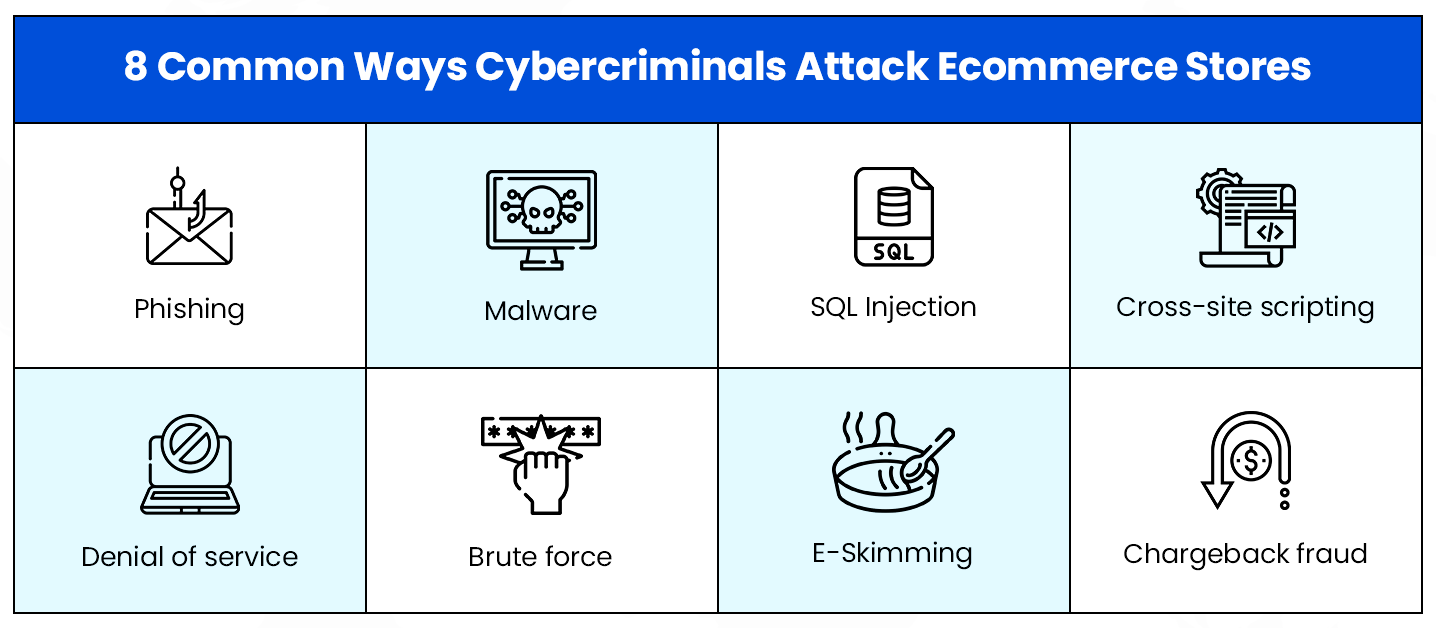Cybersecurity tips for eCommerce website owners: Safeguarding Your Online Business
Embark on a journey through the world of cybersecurity tips for eCommerce website owners, where the importance of protecting your online business is paramount. Discover the risks, threats, and best practices that can help you secure your eCommerce website effectively.
Delve into the realm of cybersecurity and empower yourself with the knowledge needed to keep your eCommerce venture safe from malicious attacks and breaches.
Importance of Cybersecurity for eCommerce Websites

Ensuring strong cybersecurity measures is paramount for eCommerce websites to protect sensitive customer information, financial transactions, and maintain trust with consumers.
Potential Risks and Threats
eCommerce website owners face various potential risks and threats, including:
- Malware and ransomware attacks targeting customer data and payment information.
- Phishing scams aiming to trick customers into revealing personal details.
- Data breaches resulting in the exposure of sensitive customer information.
- DDoS attacks that can disrupt website operations and lead to financial losses.
Impact of Cybersecurity Breach
A cybersecurity breach can have devastating consequences for an eCommerce business, such as:
- Loss of customer trust and credibility, leading to a decline in sales and reputation damage.
- Financial losses due to theft of payment information or fraudulent transactions.
- Legal repercussions and fines for failing to protect customer data in compliance with regulations.
- Downtime and disruption of business operations, affecting revenue and customer satisfaction.
Common Cybersecurity Threats in eCommerce

As eCommerce continues to grow, so do the cybersecurity threats that target online businesses. It is crucial for eCommerce website owners to be aware of these threats in order to protect their data and their customers.
Malware
Malware is a type of software designed to damage or gain unauthorized access to a computer system. In the eCommerce industry, malware can be used to steal sensitive customer information such as credit card details or login credentials.
Phishing
Phishing is a cyber attack where attackers attempt to trick individuals into revealing sensitive information such as passwords or credit card numbers. In the eCommerce sector, phishing attacks can involve fake emails or websites that mimic legitimate businesses to steal personal information.
DDoS Attacks
DDoS (Distributed Denial of Service) attacks involve flooding a website with an overwhelming amount of traffic to make it inaccessible to legitimate users. This can result in loss of sales and damage to the reputation of an eCommerce website.
Recent Cybersecurity Incidents in eCommerce
- In 2020, the clothing retailer SHEIN experienced a data breach that exposed the personal information of over six million customers.
- In 2019, Macy's suffered a Magecart attack where hackers injected malicious code into the retailer's website to steal payment information from customers.
How Hackers Target eCommerce Websites
Hackers target eCommerce websites by exploiting vulnerabilities in the website's code, using phishing emails to trick employees into revealing login credentials, or launching DDoS attacks to disrupt the website's operations. It is essential for eCommerce website owners to implement strong cybersecurity measures to protect their business and customer data.
Cybersecurity Best Practices for eCommerce Website Owners
Ensuring the security of your eCommerce website is crucial to protect both your business and your customers. Implementing best practices in cybersecurity can help prevent data breaches and safeguard sensitive information.
Implementing Secure Payment Gateways
When setting up payment gateways on your eCommerce website, it is essential to choose reputable and secure providers. Make sure the payment gateway complies with industry standards for data security and encryption.
- Use PCI DSS compliant payment gateways to ensure the protection of cardholder data.
- Regularly update payment gateway software to patch any vulnerabilities and enhance security.
Importance of SSL Certificates and HTTPS Protocols
SSL certificates and HTTPS protocols play a vital role in securing online transactions and protecting customer data from cyber threats.
- Obtain an SSL certificate to encrypt data transmitted between the website and the user's browser, ensuring secure communication.
- Enable HTTPS protocols on your eCommerce website to establish a secure connection and prevent hackers from intercepting sensitive information.
Creating Strong Passwords and Implementing Multi-Factor Authentication
Strong passwords and multi-factor authentication add an extra layer of security to your eCommerce website, making it more challenging for cybercriminals to gain unauthorized access.
- Create complex passwords with a combination of letters, numbers, and special characters to enhance password strength.
- Implement multi-factor authentication methods such as SMS codes, biometric scans, or security tokens to verify user identity and prevent unauthorized logins.
Final Thoughts

In conclusion, safeguarding your eCommerce website with robust cybersecurity measures is essential in today's digital landscape. By implementing best practices and staying vigilant against threats, you can protect your business and customer data from potential harm.
Detailed FAQs
How can I secure my payment gateways on my eCommerce website?
To secure your payment gateways, ensure they are encrypted, use secure third-party services, and regularly update your software to prevent vulnerabilities.
Why is encrypting customer data important for eCommerce websites?
Encrypting customer data is crucial to protect privacy and prevent unauthorized access to sensitive information, ensuring trust between you and your customers.
What is multi-factor authentication, and why is it recommended for eCommerce websites?
Multi-factor authentication adds an extra layer of security by requiring users to provide multiple credentials to access their accounts, reducing the risk of unauthorized access.

